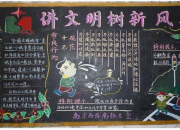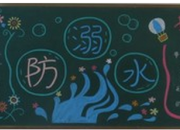上海市长宁区届高三二模含听力英语试卷
时间:2021-08-31上海市长宁区2019届高三二模含听力英语试卷
一、短对话
A. Teacher and student.B. Father and daughter.
C. Manager and secretary.D. Customer and shop assistant.
A. In a museum.B. In a taxi.C. On a bus.D. On a bridge.
A. Get into the car.B. Carry the bags.
C. Hurry to drive the car.D. Search for the bags.
A. Reading newspapers.B. Writing up local news.
C. Talking about sports.D. Putting up advertisements.
A. She will have coffee at school.B. She will stay for breakfast.
C. She loves to grab a coffee on the way.D. She needs to eat before school.
A. He partly agrees with the woman.B. He’s missed an important point.
C. He considers the woman competitive.D. He’s wholly been lost in a colorful life.
A. Mary must be caught in heavy traffic.B. Mary probably will not come.
C. The woman was obviously not fond of Mary.D. The woman forgot to tell Mary to come.
A. The tennis game won’t last long.B. Weather forecasts are not reliable.
C. They could stick to their plan.D. They’d better change their mind.
A. Stay till tomorrow evening.B. Leave for Beijing with Jack.
C. Go to the airport after work.D. Ask someone else for help.
A. The man doesn’t like his new suit.B. The new suit is a reminder for the man.
C. The new suit doesn’t fit the man.D. The man forgets to wear his new suit.
二、短文
Questions are based on the following speech.
1.
A. Educators from South Africa.B. Teenagers fond of cooking.
C. Students eager to make friends.D. Photographers around the world.
2.
A. Brainstorming ideas in one’s group first.B. Avoiding using cooking oil.
C. Sending a sample dish before May.D. Creating one’s own dish.
3.
A. To announce a cook competition.B. To start a cook festival on campus.
C. To advertise a local cook course.D. To organise a cook show in South Africa.
Questions are based on the following speech.
1.
A. Guitarists are vital to a pop group.B. Guitar tutors aren’t difficult to find.
C. Guitar players have more chances to travel.D. Beginners don’t make noise with the guitar.
2.A. About 60 years.B. About 500 years.C. About 1000 years. D. About 20xx years.
3.
A. Indians played the lute with a bow.B. The guitar originated in Spain.
C. The sitar took root in British music.D. The Beatles relied a lot on the brass.
4.
A. Reasons for the popularity of the guitar.B. Some interesting facts about the guitar.
C. Various kinds of guitars in the world.D. Stories of some famous guitar players.
三、长对话
Questions are based on the following speech.
1.
A. It sells things from ancient Egypt.B. It looks like an Egyptian giant.
C. It brings a feel of a different world.D. It offers a wide range of cheeses.
2.
A. Produced by the department store itself.B. Supplied by a nearby small town.
C. Collected from the outside of the building.D. Obtained from the numerous light bulbs.
3.
A. Customers spend £1.5 million or so per day.B. Around 30,000 customers come per day.
C. There is a big increase in customers and sales.D. Customer flow and sales are quite unsteady.
四、语法填空
Directions: After reading the passage below, fill in the blanks to make the passage coherent and grammatically correct. For the blanks with a given word, fill in each blank with the proper form of the given word; for the other blanks, use one word that best fits each blank.
To any soldier,I served as a second lieutenant (少尉) in a war thirty years ago. Married for only a year and a half, I missed my wife and baby daughter a lot. In the years before cell phones and Wi-Fi, we had limited opportunities 1. (communicate) with loved ones.
One night while sitting by myself, I investigated the “Any Soldier” mailbox, a cardboard box with letters and packages from Americans. I chose one shoebox-size package. Inside I found about 20 greeting cards 2. children. At the bottom was a letter written by their teacher 3. (explain) how her kids had put the box together and how they supported our efforts in the war. Truly touched at that very moment by this gesture, I decided to write a letter of gratitude. I thanked the teacher for 4. her children had done—its impact on my patriotism, my morale, and, 5. (significantly), my uplifted faith. For security reasons, I was able to sign only my name.
Around 20xx, I received a Facebook friend request from a woman with 6. I shared no contacts. I replied that 7. we were friends, I could not accept her request. She responded with one question: “Are you Second Lieutenant Bartholomew” I replied that I had been at one time.
“Dear sir,” she wrote. “We have never met, but thirty years ago I was a second-grade teacher at a school in Ohio and our classroom sent a care package 8. (address) to ‘Any Service Member.’ The thank-you letter you composed was framed and it 9. (post) on the wall of the school for more than 20 years. I wanted to again thank you for your service to our country.”
We never spoke again, but this gracious teacher strengthened my belief in doing what my mother always taught me: Write thank-you notes— 10. never know how many people your kindness can touch.
五、完形填空
Directions: For each blank in the following passage there are four words or phrases marked A, B, C and D. Fill in each blank with the word or phrase that best fits the context.
Keeping it in the family.
“You understand grandmother when she talks to you, don’t you, darling” The girl nods. I met her, her Japanese mother and English father on a plane to Japan. The parents were eager to ____ their experience of bringing up their daughter bilingually (使用双语地) in London. It isn’t easy: the husband does not speak Japanese, so the child hears the language only from her mother, who has come to ____ that the girl will reply in English. This can be painful. Not sharing your first language with loved ones is hard. Not passing it on to your own child can be especially tough. Many immigrant parents feel a sense of ____.
Children learn languages easily, but this doesn’t mean that ____ exposure is enough. They must hear a language quite a bit to understand it—and use it often to be able to speak it comfortably. This is mental work, and a child who doesn’t have an intention to speak a language will often avoid it. So languages often die when parents move abroad. In the past, governments discouraged immigrant families from keeping their languages. These days, officials tend to be ____; some even see a valuable resource in immigrants’ language abilities. Yet many factors ensure that children still lose their parents’ languages, or never learn them. A big one is institutional ____. A child’s time spent with a second language is time not spent on their first. So teachers often discourage parents from speaking their languages to their children. Parents often ____ obey, worried about their children’s education. This is a(n) ____, for children really can master two languages or even more. Research does indeed suggest their vocabulary in each language may be somewhat smaller for a while, but other studies hint at intellectual advantages among bilinguals. They may be more skillful at complex tasks, better at maintaining attention.
Even without those side effects, ____, a bilingual child’s connection to another culture is a good thing in itself. How to ____ When both parents share the native language, the strategy is often to speak that at home, and the national language outside. But when they have ____ languages, perhaps the most common approach is “one parent, one language”. Francois Grosjean, a language expert from Switzerland, ____ the necessity. He recommends reserving occasions on which the only language that may be spoken is the one that needs ____. Sabine Little, a language expert at the University of Sheffield, puts the emphasis elsewhere. Making the native language yet another task ____ by parents can lead to rejection, she argues. She recommends letting the child form their own ____ connection to the language, for languages are not just another thing to be drilled into a young mind, but a matter of the heart.
1.A. concealB. publicizeC. discussD. imagine
2.A. acceptB. argueC. decideD. ensure
3.A. excitementB. inferiorityC. failureD. injustice
4.A. momentaryB. maximumC. repeatedD. continued
5.A. less stimulatedB. less controllingC. more relievedD. more discouraging
6.A. engagementB. featureC. prejudiceD. pressure
7.A. cheerfullyB. faithfullyC. immediatelyD. reluctantly
8.A. instanceB. shameC. ambitionD. suggestion
9.A. thoughB. henceC. besidesD. otherwise
10.A. keep it upB. carry it onC. figure it outD. bring it about
11.A. multipleB. differentC. foreignD. target
12.A. removesB. challengesC. emphasisesD. ignores
13.A. preservationB. restrictionC. rejectionD. connection
14.A. performedB. imposedC. sharedD. recommended
15.A. skillfulB. powerfulC. apparentD. emotional











